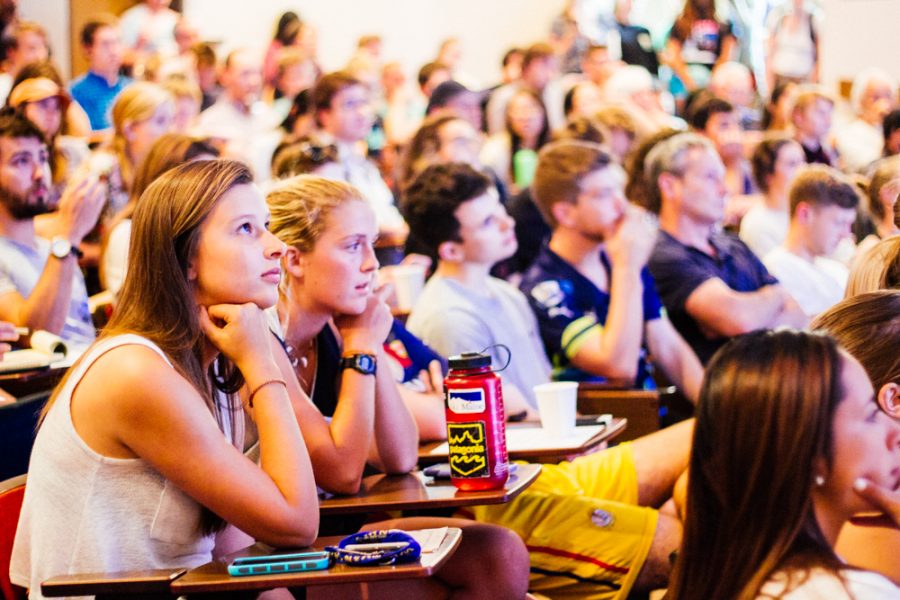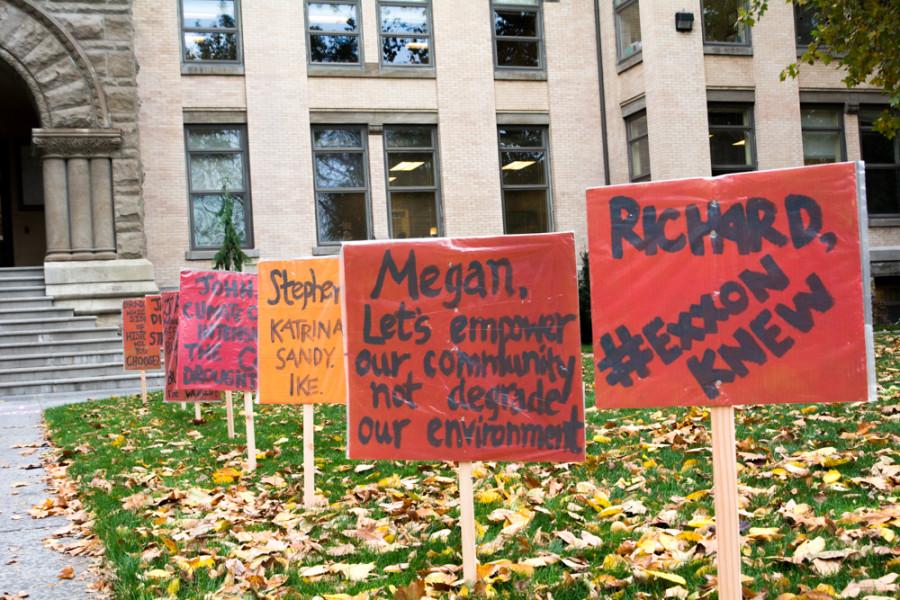In the excitement of the upcoming presidential election, voters may forget that Barack Obama and John McCain are not the only names that will appear on their ballots on Election Day.
On Nov. 4, Walla Walla residents will also cast their votes for local representatives in one of the first elections since Washington State instituted the controversial “top-two” primary system last fall.
The city of Walla Walla is part of the state’s 16th Legislative District, which covers all of Walla Walla and Columbia counties as well as southern sections of Benton and Franklin counties, including East Kennewick and Pasco. Each of the state’s 49 legislative districts elects one representative to a four-year term in the Washington State Senate and two representatives to a two-year term in the House of Representatives. In addition to voting for these three legislative positions, Walla Walla residents will also mark their ballots for two county commissioners. Races for local judge positions were decided in the primary election.
In the two races for 16th Legislative District State Representatives, incumbents Maureen Walsh and Bill Grant vie for re-election against opponents Dante Lee Montoya and Terry R. Nealey, respectively. According to the Washington Secretary of State’s Web site for the legislature, both Walsh and Grant are far ahead of their competitors in the polls. “No disrespect to the challengers, but they’re no match for the experience that the incumbents will take to the Legislature,” said The TriCity Herald editorial staff in a recent opinion piece.
A moderate Republican, Walsh focuses heavily on social issues and educational reform; she helped launch the State Department of Early Learning in 2006. Bill Grant is a fourth-generation wheat farmer from Prescott who has risen up the political ranks to become the third-ranking Democratic in the State House. As the only Democratic legislator in eastern Washington south of Spokane, Grant’s popularity with local voters is fueled by his fiscal conservatism.
Energized by Walsh’s educational platform and Grant’s farming background, candidates running for state representative positions are focusing their campaigns on school budgets and agricultural issues, as well as various public works projects.
“I think that local issues are not very linked with the national races,” said Bill McCaw, the Chair of the Democratic Central Committee in Walla Walla. “Primarily, county issues revolve around taxes, roads, land ownership versus the developers and the environmental concerns.”
McCaw named a number of concerns that legislative candidates have addressed on the campaign trail. “The legislative issues are mostly about school financing, roads (four lanes for Highway 12 to the Tri-Cities), retention of the dams on the Snake and Columbia Rivers, agriculture concerns such as odor pollution from livestock manure, run-off to streams from manure and chemicals, division of funding between east and west sides, school teaching mandates and health care for rural residents. There is a small concern about cleaning up Hanford, but not a major one here.”
In typical 16th Legislative District partisan elections, said McCaw, two-thirds of residents vote Republican. This trend, however, may be interrupted in the wake of the anomalistic presidential race.
“It will be very interesting how this one ends up with so many Republicans
admitting that they are going to vote for Obama,” said McCaw. ”Whether or not this will translate down the ballot to the Governor and other state offices will be problematical [sic].”
In addition to the effect of the upcoming presidential race, the outcome of local elections may also be influenced by the recently instituted “top-two” primary system. Approved by state voters last fall, the new system allows Washington residents to cast their votes without pledging themselves to a particular political party. The names of all candidates seeking nomination to office and their self-declared party affiliations are listed on a single ballot. Voters mark their ballots for one candidate in each position, and the two candidates which garner the most votes: regardless of their party preferences: advance to the general election.
Advocates of the new system argue that it democratizes the election process by allowing voters to choose from a larger group of primary candidates, a selection that is not limited by party registration. On the other hand, political parties complain that the system violates their right to free association, an entitlement protected under the constitution.
Because of the top-two primary system, no Democrats are running in the race for Country Commissioner. Republican Mike Hewitt is running unopposed for re-election to the Washington State Senate from the 16th Legislative District.
“One problem in areas with strong majorities is that the new top-two primary system used this year makes it difficult for the minority candidate to be sure of a place on the final ballot,” said McCaw. “Essentially, it very efficiently drives a wedge into the party structures and allegiances of the county.  Many people wonder why political parties are necessary anyway, and this form of primary just hurries this feeling along.”









